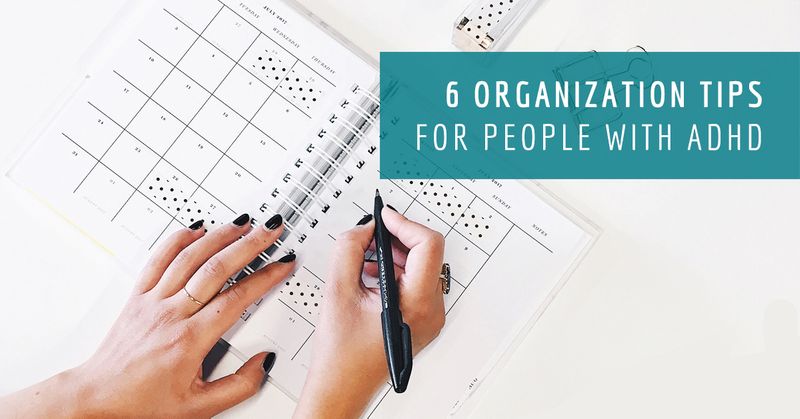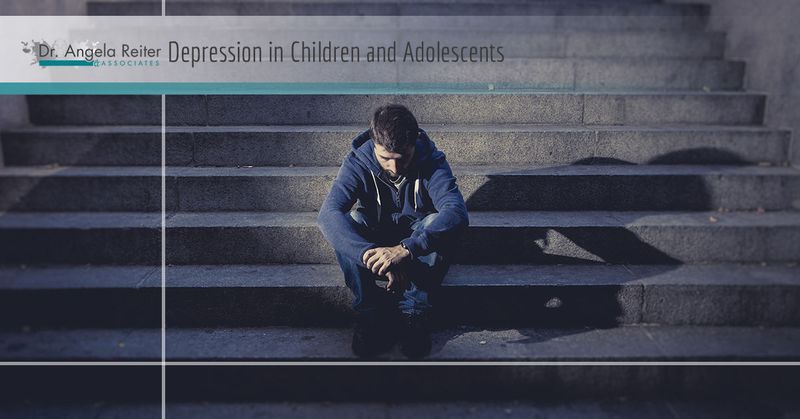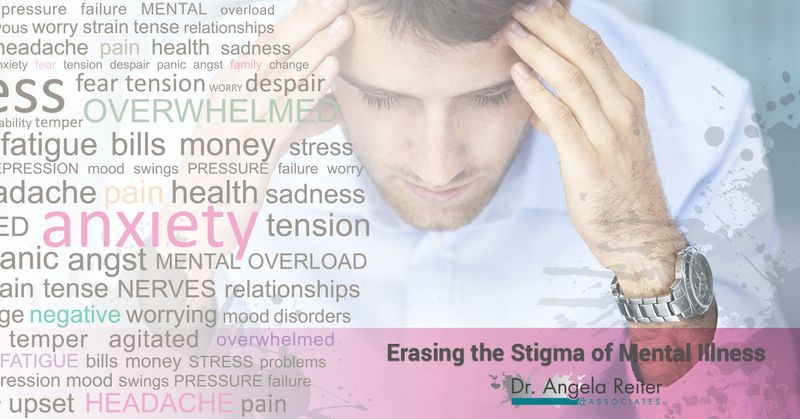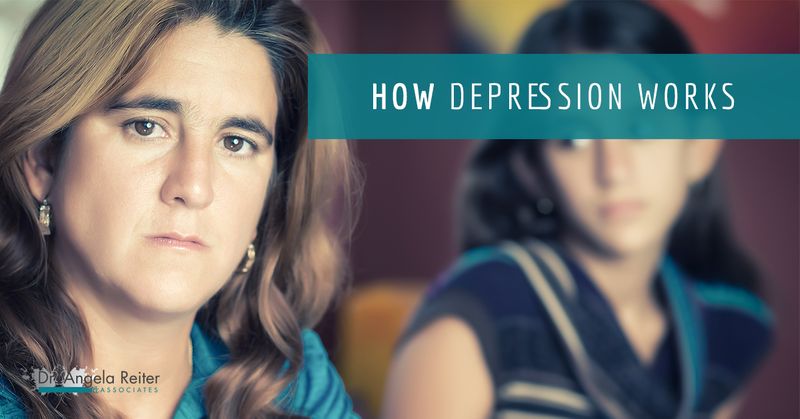Blog
Foreign Language Waiver Evaluation
Learning a second language is part of almost every student’s academic process. But, for some, acquiring a second language is not possible for several reasons. Those with certain developmental disabilities often cannot learn a second language. There are other individuals who struggle to learn the required foreign language in middle school or high school no matter what interventions are provided. Studies suggest that people who struggle to learn a foreign language have brains that are not wired to retain certain linguistic skills. The areas of the brain utilized in learning a foreign language include the parietal lobe, temporal lobe and occipital lobe in the left hemisphere. The Wernicke area and Broca area within these regions allow us to understand, recognize, read and speak language. For those with language-based learning disabilities, learning a foreign language beyond a semester or two will probably not be successful. For individuals with phonological difficulties (problem putting sounds together and breaking them down) and orthographic difficulties (sound-symbol tasks), learning a foreign language will not be possible.
For most individuals who are may have a more mild level of learning disability or speech/language disorder, a combination of accommodations and academic support can help them learn and pass their foreign language courses successfully. A foreign language waiver may be appropriate for the following individuals with more moderate to severe issues: those with delayed speech, frequent ear infections in childhood, reading disorders, and/or writing disorders. Testing for a Foreign Language Waiver may involve the following tests: Modern Language Aptitude Test (MLAT), Wechsler Adult Intelligence Scale-Fifth Edition (WAIS-V), Woodcock Johnson Tests of Achievement-Fourth Edition (WJ-IV), Delis Kaplan Neuropsychological Test of Executive Functioning, Comprehensive Test of Phonological Processing-2nd Edition, and the Test of Orthographic Competence.
moreLearning Disability: How Is It Diagnosed? Will The Diagnosis Help Your Child? Do You Think Your Child Might Have A Learning Disability?
Do you think your child might have a learning disability? The signs of learning disabilities begin at an early age but can be overlooked or missed often until the 2nd or 3rd grade when a focus on testing and independent work becomes more common. Teachers and parents alike often shrug the signs off. They believe that the child will catch up or may just “not be interested” in learning.
While in reality, the child is trying their best to keep up with classmates while falling further behind.
Therefore, as parents and teachers, it is our responsibility to bring the right support to the table for this child. The best way to do this is to proceed with a learning disability test and learning disability evaluation. The IDEA (Individuals with Disabilities Education Act) permits your child to have a free evaluation and diagnostic test through your local school district if a panel of experts believes that a learning disability is inhibiting their education.
moreTips For Coping With Insomnia
Insomnia is a burden that interferes with your daily functioning. If you have a hard time falling and/or staying asleep, you may feel like a zombie, just shuffling through your day until you can collapse into bed and once again, struggle to sleep. Sometimes, insomnia isn’t as simple as changing certain lifestyle habits. If this is the case for you, you may benefit from our cognitive behavioral therapy for insomnia group. Alternatively, you can meet with a counselor one-on-one to work through your sleep issues. In the meantime, here are some tips for setting yourself up for a successful night’s sleep.
moreHow To Help Your Spouse With ADHD
You love your partner with ADHD. When you first started dating, it was exciting to be with someone so spontaneous, active, and outgoing. You may have thought very little about their ADHD because it didn’t stop them from being an exciting and loving partner. Yet once the honeymoon period was over and you started to build a life together, problems began to pop up. Maybe your spouse needs to follow a regimented routine to remember everything they have to do, and they become extremely stressed when you have to stray from it. Maybe they become so immersed with tasks that you are always late to every social event. It could be that they never seem to hear you when you ask them to do something. Regardless of the specific situation, while it’s easy to love your spouse with ADHD, it isn’t always easy to live with them. The symptoms of ADHD often interfere with daily living, and when you spend every day with someone, you’re bound to be impacted by their quirks. That being said, there are ways to make both of your lives easier—it just takes some empathy and proactive communication.
moreDoes My Child Need Therapy?
It goes without saying that you want the best for your child. From the moment they were born, you care and want them to thrive. This can make it very painful when things aren’t going well for them, and you might be at a loss as to what to do. If your kid is struggling emotionally or behaviorally, you may be considering bringing them to a child psychologist. If you are located in or near Eastchester, we would be more than happy to help you.
more6 Organization Tips For People With ADHD
When you have attention-deficit/hyperactivity disorder (ADHD), things that may seem simple to some can feel overwhelming. Balancing work, your personal life, and your household can feel like you are juggling, and not very well. There are many challenges that come with being an adult with ADHD. Fortunately, with a little attention to self-management and care, you can live an organized life, leading to a greater sense of self-worth. It doesn’t happen overnight, but with the right attitude and some practice and patience, ADHD doesn’t have to stop you from reaching your full potential or feeling like you have control over your life.
moreHow To Successfully Search For A Therapist
When someone starts a search for a therapist, there are many options where they can start their search. For those who start by looking on their insurance company website and printing out a list of providers within a specific area, you know the frustration of calling a long list only to either not receive a phone call back at all, to be told “no new patients” or to find out that the provider no longer takes your insurance. Many insurance websites do not have updated provider directories. It is also very difficult to tell from a list whether or not you would feel comfortable with the therapist or anything about their expertise or therapeutic orientation. You will likely end up frustrated and confused if you take this track in searching for a provider. Most of us do not have the time to call 30 people or time to schedule 5 different appointments to see who the best fit is.
You can also try various websites, such as Psychology Today and GoodTherapy.org. These are a great option as they allow you to search by location, age served, therapeutic orientation, and conditions treated. You are then provided with a profile with pictures and several paragraphs about the individual. You can also email the provider directly if you are searching after hours. Most therapists on these platforms also provide a free 15 minute phone consultation to discuss any specific questions you may have about how they can help and their availability. We provide this option at Dr. Angela Reiter & Associates.
more5 Lesser Known Symptoms Of Depression
Picture a person with depression and what they might be feeling. Chances are, you see someone curled up into a ball, crying. While extreme sadness is one symptom of depression that many people experience, this condition does not manifest in the same way for everyone. As a result, depression often goes overlooked until it starts to interfere with daily life. Educating yourself on the lesser known symptoms of depression may help you recognize them in yourself or someone you know. In this blog, we will go over some depressive symptoms about which not everyone knows.
moreA Self-Care Guide To Living With Anxiety
When you have an anxiety disorder, every day is living in a storm of debilitating, worried thoughts. While not every anxiety disorder is the same and everyone experiences it differently, it may comfort you know that you’re not alone; it is estimated that 19 percent of Americans experience severe anxiety. Anxiety can be incredibly paralyzing, making it difficult to function. Fortunately, there are certain ways you can potentially reduce your anxiety symptoms. Many people find that therapy and/or medication help to manage their anxiety, but this should also always be paired with certain self-care measures. In this blog, we will go over some self-care measures you can put in place in your daily life to help you cope with your symptoms.
more504 Plan For ADHD
“People with ADHD have more thoughts before breakfast than most people have all day.”- Anonymous
The above quote indicates how people with Attention-Deficit/Hyperactivity Disorder (ADHD or ADD) are comparatively more energetic, creative, and spontaneous in their daily lives. For a child with ADHD (or ADD), it can be difficult to get going in the morning and transition from home to school. Also, while in school, a child or adolescent with ADHD (or ADD) can struggle to transition between subjects and activities.
While children with ADHD have multiple strengths that can help them become very successful in the future, there are certain problems associated with the condition that can interfere with several aspects of their lives including home, academic, and social activities.
Most of us find it difficult to sit still, maintain focus, or control impulsive behavior sometimes. However, such problems are way too pervasive and persistent in people having ADHD disorder. ADHD, a chronic neurodevelopmental disorder, is estimated to affect around 11% of school-going children, causing symptoms such as immense hyperactivity and/or incapability to pay adequate attention or maintain focus for extended periods of time.
moreHow To Overcome Back-To-School Anxiety In Students
The end of the summer can be very upsetting for many students. Going back-to-school means having a hectic schedule, lots of homework, and the same boring “early to bed and early to rise” routine. Many children and teenagers also experience difficulty with transitions and “switching” their brain back to learning mode after a summer of camp, relaxation, and family vacations.
While a majority of the students find the transition from vacations to school stressful, a few of them find it literally unbearable and extremely anxiety-provoking. Such students can face anxiety disorders and extreme mood swings that are much severe than normal back-to-school jitters.
Back-to-school anxiety might be the reason behind their impulsivity, tantrums and sudden complaining of headaches and stomachaches. It can also be very difficult to suddenly change a lax summer bedtime schedule back to an earlier time for the start of the school year.
Generally, back-to-school anxiety is a result of over thinking which pre-occupies the mind of a student, making them more anxious and nervous. Most of the time, their thoughts usually consist of:
- “Who will be my new teacher?”
- “Will I be allowed to sit with my best friend or will the seating arrangement change again?”
- “Who will I sit next to during lunch time?”
- “Will the new classmates accept me?”
- “Will I manage to get good grades?”
CBT-I Therapeutic Treatment For Insomnia
We all experience that occasional night or two where we cannot sleep. We toss and turn, thoughts and worry running through our heads. This is a normal reaction to life’s stressors such as relationship issues, loss, or job stress. When sleepless nights persist for three nights per week for at least three months, this is chronic insomnia. Many people turn to over-the-counter treatments such as Benadryl or Melatonin to help with chronic insomnia. Others are prescribed sleeping medications such as Ambien or Lunesta. Sleeping medications are only meant to be used short-term although many individuals use them much longer, even years at a time! Very little is known about the effects of long-term sleep medication use. All sleep medications have side effects such as a morning “hangover” as well as dependency. Sleeping pills are only moderately effective. There is actually a significant placebo effect when someone takes a sleeping pill. Many people actually fall asleep before the medication is ever absorbed in the gastrointestinal tract. Also, sleeping medications do not actually improve sleep quality or the number of hours slept. We are supposed to wake up about 6 times per night (generally so brief we do not remember) as we move through the stages of sleep. When someone takes a sleeping pill, they are just experiencing an amnesia effect where they do not recall waking up!
moreCognitive Behavioral Therapy For Insomnia-CBT-I
Cognitive Behavioral Therapy for Insomnia-CBT-I
Almost 60% of adults report insomnia at least two nights per week. A new generation of sleeping pills on the market have prospered due to marketing and advertising, but patients experience significant side effects from sleeping pills, increased mortality, and decreased effectiveness over time. Most significantly, the use of sleeping pills reinforces the belief that the cure for insomnia comes from external factors. Cognitive Behavioral Therapy for Insomnia (CBT-I) has been proven to be more effective than sleeping pills. If a poor sleeper relies on sleeping pills, when they discontinue the medication, their insomnia returns. This can lead to a cycle of insomnia and recurrent, long-term use of sleeping pills.
Studies have shown that CBT-I helps patients fall asleep faster than when they use a sleeping pill. Another study has shown that CBT-I is more effective in the short-term and long-term than Ambien. Use of CBT-I consistently shows that 90% of patients reduce or eliminate sleeping pills (Harvard and UMass Medical Schools). CBT-I is the preferred treatment for chronic insomnia (New England Journal of Medicine and the Lancet and by the National Institutes of Health, Consumer Reports and the American Psychological Association). CBT-I also reduces insomnia in patients with a variety of co-morbid disorders (e.g. pain, fibromyalgia, depression, PTSD, and substance abuse). CBT-I actually doubles the improvement rate of depression compared to antidepressant medication alone in depressed patients with insomnia!
moreHow Depression Works
So often we see on social media, or hear in movies and TV shows, the overblown and very hyperbolic statement, “[insert innocuous thing here] I’m so depressed now!” More often than not, someone claiming to be “so depressed” in their social media posts is doing so to be purposefully dramatic for effect, when they are not, actually, depressed at all. They may be sad, melancholic, bummed out, or downright annoyed but, more often than not, this is not Depression with a capital D. When we talk about depression, we mean the actual neurological and psychological mental disorder that can deeply affect those who suffer from it. So, what’s the difference?
moreWhat To Expect From Pre-Adoption Psychological Evaluations
Generally, people find it very daunting to visit a psychologist in order to have a psychological evaluation. This fear increases when the couple is planning to adopt a child especially after more than a few unsuccessful attempts to conceive a child of their own. They might be going through severe frustration and dilemma plus are not ready to take any chance that would not allow them to have a child. However, having pre-adoption psychological evaluation is very imperative for the healthy upbringing of the child. Furthermore, it helps the potential adoptive parents to give their best in the future. Hence, it is a mandatory step of international adoption process.
For every country, the requirements might differ but the process of pre-adoption psychological testing remains the same. The length of time for pre-adoption psychological evaluation interview is approximately three to four hours. The interview is divided into two main segments. The first hour is dedicated to the one-to-one interview between potential adoptive parents and the psychologist. Typically, we see each parent separately and then together as a couple. The last two hours are reserved for the true or false assessment known as Multiphasic Personality Inventory-2 or the MMPI-2.
moreYour Brief Guide To 504 Plan For Anxiety
Any individual suffering from any type of physical or mental disability can come across several kinds of challenges and hurdles in their daily life. Students spend most of their time at schools or colleges where they are promised a nurturing and healthy learning environment. Therefore, in order to diminish any sort of discrimination and difficulties faced by the students who are not eligible for special education but are going through some sort of disability, the federal government has come up with the solution in the form of Section 504 of the Rehabilitation Act of 1973. At Dr. Angela Reiter & Associates in Eastchester, NY we routinely conduct psychological evaluations to assist your child in obtaining a 504 Plan for Anxiety. We also participate in 504 Plan meetings both in person and via telephone.
moreWhat Is ADHD Testing Like?
Many patients often wonder “what is ADHD testing like?” What does a psychologist do when they are testing for ADHD? When you are being evaluated for ADHD, the process generally includes a detailed intake where we discuss your current symptoms, family relationships, educational and career history, and medical history. During the intake, we discuss the test battery that would best evaluate your presenting symptoms. This is likely to include IQ testing, achievement testing, neuropsychological testing and emotional testing. The next step is to schedule two to three testing dates to complete the tests. At Dr. Angela Reiter & Associates, we conduct all testing in the morning, when you are the most alert and less likely to be fatigued after work or school. Test days usually last around two hours each, with breaks as needed.
What is an ADHD test like? What are examples of IQ tests, achievement tests, neuropsychological or emotional tests? IQ, or intelligence tests include the WISC-V for children and the WAIS-IV for adults. An IQ test generally takes about an hour to complete. IQ tests evaluate an individual’s verbal comprehension, perceptual reasoning, working memory, and processing speed abilities. Achievement tests include the Woodcock Johnson 4th edition-Achievement Battery. The WJ-IV evaluates an individual’s age and grade level performance in reading, writing, and math. Other achievement tests may include tests that focus in on an individual subject, like the Grey Oral Reading Test, the Test of Written Language, or the Feifer Assessment of Reading. These tests can help provide information on any specific deficits within an academic subject. Achievement tests take around 45 minutes to an hour to complete. Individuals with ADHD often have co-occurring conditions such as a learning disability or anxiety and/or depression so it is important to include tests to rule-out those conditions as well. Neuropsychological tests include the Continuous Performance Test, the Delis Kaplan Executive Function System, objective questionnaires, and the Wide Range Assessment of Memory and Learning. These tests take anywhere from 15 minutes to an hour each. Neuropsychological tests assess an individual’s cognitive flexibility, inhibition, processing speed, verbal fluency, organization/planning abilities, and memory. Individuals with ADHD typically struggle with tasks that require cognitive flexibility. Finally emotional testing often includes objective questionnaires and projective testing like the Rorschach Inkblot Test. Projective testing usually takes around an hour to complete.
moreWhat Is IEP Testing?
IEP (Individual Education Plan) is a term that seems to be getting increasing attention in the news across the country in recent years. If you have a child who has a mental health disorder or a learning disability, you are likely familiar with it already – and if you aren’t, you may want to learn more! The IEP is a system developed for public schools across the United States; it is designed to ensure that any child with a disability reaches educational goals. Each IEP is designed through IEP testing and planning between parents and the school to determine the best way to help each student individually.
moreIs Anxiety On The Rise In Children And Teens?
When I first dove into the realm of private practice about nine years ago, a majority of the referral reasons for the children and adolescents that I worked with included oppositional behaviors, attention problems, and difficulty adjusting to separation or divorce. Slowly over the past few years, I began to notice that a majority of my patient population is diagnosed with an anxiety disorder. I would say that around 75% of parent phone calls or emails are about whether therapy can assist their child or adolescent with the stress or anxiety that they are experiencing.
What has caused this increase in childhood anxiety? Are we just a more anxious society? Is it our obsession with social media? Is it overscheduling or academic pressure? In all likelihood, it is most likely to be a combination of these factors plus several others that has led to an increase in anxiety at a younger age. When I first studied psychology, I remember learning that 10-20% of children are born with a temperament that can be characterized as highly reactive and “slow to warm up.” There is also a genetic component to anxiety. Certain individuals may be more vulnerable to anxiety in situations due to their genetic makeup. School is more competitive, children spend less time outdoors, but at the same time they are overscheduled with activities. Children do not spend enough time being “bored.” Instead they are shuttled from one organized activity to another, squeezing in tutoring, homework, and social media and going to bed later and later. Parents want their child to be academically successful, social, happy, and emotionally intelligent all the time. It is impossible to always experience these things. This pressure to experience this all the time leads to the child being burned out and overwhelmed.
morePanic Attacks: A Primer
Do you ever get the feeling, like Chicken Little, that the sky is falling and there’s no way to survive? Or maybe you feel a recurring feeling of choking, chest pain, or shortness of breath that comes out of nowhere and goes away just as suddenly. When it comes to panic attacks, you may not even realize that’s what you’re experiencing until you’re in the ER waiting to be seen for symptoms that have gone away and left little or no trace.
Panic Attacks are very real, but the symptoms can vary from person to person. For some, they may feel as overwhelming and painful as a heart attack, while for others it could feel more like an asthma attack. No matter what your symptoms, panic attacks can be a sign of related problems, so it’s important to see a psychologist and begin treatment because, even if your symptoms are mild, they can lead to other health problems as time continues. But how do you know what you’re experiencing is a panic attack? Read on for panic attack basics and what you can do about them.
moreWhat Are The Symptoms Of Anxiety In Children And How Is It Treated In Therapy?
For an adult, anxiety symptoms often include excessive worry, restlessness, fatigue, difficulty concentrating, irritability, difficulty sleeping and panic attacks that are often misinterpreted as a heart attack. Anxiety often presents differently in children. Behaviors such as severe tantrums, night terrors, school refusal and avoidance, as well as increased somatic symptoms such as stomachaches, headaches and nausea. The difficult part about figuring out whether a child is having a “behavior problem” or is actually experiencing a significant mood or anxiety disorder is that children are often unable to make sense of or express verbally what they are experiencing due to their age and lack of experience with these situations and feelings as well as their developmental stage preventing them from expressing their feelings and worries through language. As an adult, we can say “I am worried that I am going to lose my job,” but a child is not able to identify what scares them yet until they have been taught how to identify and label their feelings and thoughts that they experience.
At Dr. Angela Reiter and Associates, a psychology practice located in Eastchester, NY, we assist your child in identifying and labeling feelings and thoughts and connecting them to triggering events and the behaviors that have occurred. We assist your child in identifying the physical, emotional, and cognitive symptoms of anxiety and instruct them in cognitive behavioral techniques to manage and reduce these symptoms. We utilize mindfulness-based skills such as imagery and relaxation techniques to mitigate the anxiety they are experiencing anywhere, whether they have anxiety at school, the doctor’s office, or at home.
moreDoes Your Child Or Adolescent With Anxiety Qualify For An IEP Or A 504 Plan?
At Dr. Angela Reiter & Associates in Eastchester, NY, we can assist you in determining whether an IEP (Individualized Education Program) or a 504 Plan is more appropriate for your child or adolescent experiencing anxiety. A federal law called the Individuals with Disabilities Education Act (IDEA) requires that public schools create an IEP for every child receiving special education services. Kids from age three through high school may be eligible for an IEP. An IEP is meant to address each child’s unique learning issues and include specific educational goals. An IEP includes: A statement of how your child is doing in school now, annual educational goals, special education supports and services, modifications and accommodations, accommodations allowed when taking standardized tests, how and when the school will measure and review progress toward annual goals, as well as transition planning. Accommodations are changes in how a child shows what he or she has learned, such as extra time on tests. Modifications are changes in what is taught to or expected of a student. It is important to understand that a physician or another medical professional (like a psychologist) and not the school, can diagnose medical and psychiatric conditions. This includes ADHD, learning disabilities, mood disorders, and anxiety. School evaluators don’t offer “diagnoses.” A comprehensive evaluation is often necessary to provide an accurate diagnosis and then recommend the accommodations and modifications for an IEP Plan.
morePicking The Right Psychologist
Whether you’re looking for yourself or for your child, picking the right psychologist is imperative to truly get the help you need. Since your mental well being is so important, picking a psychologist goes beyond simply scrolling through the yellow pages (if you even have a phone book) and picking the first name on the list. No, picking a psychologist should start with consulting your usual physician, but doesn’t even stop there. At Dr. Angela Reiter’s office, we want you to trust that you are working with the right psychologist to best help you or your child. If you’re looking for a psychologist, here are some questions to ask:
moreWelcome
Welcome to our site! We are in the process of building our blog page and will have many interesting articles to share in the coming months. Please stay tuned to this page for information to come. And if you have any questions about our business or want to reach out to us, we would love for you to stop by our contact page.
Thank you!
more
















